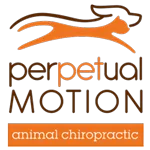"The Stress of Life" is a perennial bestseller by Hans Selye, written in 1956. Selye almost single-handedly introduced the notion of stress into the worldwide consciousness. By doing so, Selye changed the way we think about ourselves, our values, and how we conduct our lives.
As Selye observed, stress is a double-edged sword. Many types of stress are good for people, both physiologically and personally. For example, Wolff's law states that bone will remodel (build more bone) along lines of mechanical stress. In other words, bone becomes stronger when it is subjected to physical loads. The physiological stress of weight-bearing exercise such as walking, running, and strength training helps prevent osteoporosis by making bone denser and more resilient. From a psychological perspective, the great German philosopher, Friedrich Nietzsche, famously stated in "Twilight of the Idols" (1888), "What does not destroy me, makes me stronger." Apparently, Nietzsche (writing in the 19th century) was far ahead of Selye in pointing to the benefits (and dangers) of stress.
Life is filled with "good" stresses. A new love relationship, a new job, or a new baby may all provide great personal happiness and the experience of fulfillment and satisfaction. But each circumstance may also place new demands on us, calling on us to be and do much more than that of which we had previously thought ourselves capable. A person may develop all sorts of adaptive responses in attempts to cope with life's new requirements, but most of these adaptations are themselves stress-producing. Over time the adaptations become habits, stress becomes a day-by-day experience, and a host of physiological and psychological disorders and syndromes may appear.1,2 High blood pressure, diabetes, overweight/obesity, arthritis, insomnia, and depression may all be considered as long-term maladaptive responses to stress.3
Muscular aches and pains, muscle spasms, and headaches are common physiological responses to ongoing stress. A vicious circle develops in which stress leads to muscle tightness, which constricts blood vessels, which leads to headaches, which leads to more muscle tightness, more pain, and even more stress. One's day seems to become filled with stress and stress reactions. The good news is that means of ending these vicious circles of stress are available. Present time consciousness, regular exercise and a healthy diet, sufficient rest, and regular chiropractic care comprise a powerful tool kit for restoring balance in one's life.
1Wu EL, et al: Increased risk of hypertension in patients with major depressive disorder: a population-based study. J Psychosom Res 73(3):169-174, 2012
2Hristova MG: Metabolic syndrome - From the neurotrophic hypothesis to a theory. Med Hypotheses 2013 July 27 [Epub ahead of print]
3Martocchia A, et al: Targets of anti-glucocorticoid therapy for stress-related diseases. Recent Pat CNS Drug Discov 8(1):79-87, 2013
